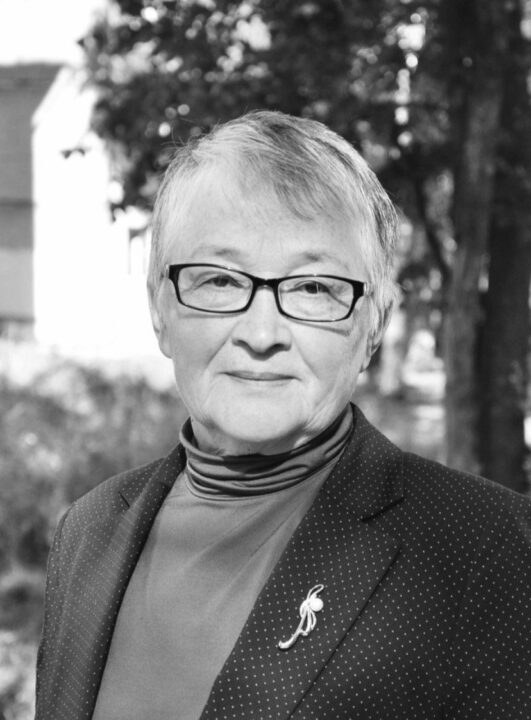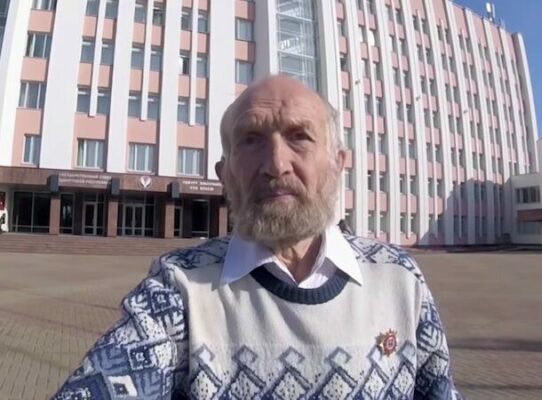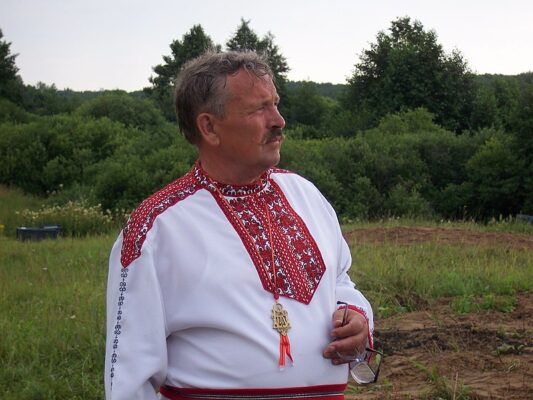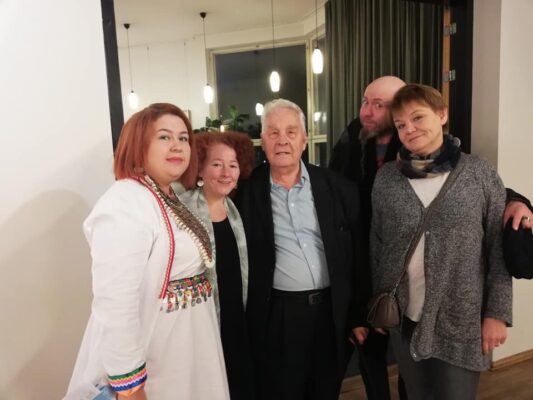In memoriam Tatyana Vladykina 08.09.1953-04.05.2024
Tatyana Vladykina, Professor, Doctor of Udmurt Philology, Head of the Udmurt Institute of Language, Literature and History, has passed away.

Tatyana Vladykina could be called the mother of Udmurt folkloristics and the founder of the studies of modern Udmurt folklore, mythology and traditional culture.
Tatyana Vladykina
Tatyana Grigoryevna Vladykina was born in the village of Starye Keny in Zavjalovo district to a family of teachers. She graduated from the Udmurt State University in 1975. She was the directed to the post-graduate course at the Tartu State University. There she studied from 1975 to 1978 under the supervision of folklorist Eduard Laugaste. According to Tatyana herself, she was strongly influenced at university by the academician Paul Ariste. For her, Ariste was a serious linguist who perceived the world through words. Apparently this is also evident in her scientific works, as noted by folklorist Eva Toulouze. In an article written in 2023 on the occasion of Tatyana Vladykina’s 70th birthday, she notes:
‘Tatyana Grigoryevna is a person who masters the word, in the deepest sense of the term. I like to recall that in Udmurt the simple lexeme кыл means both “word” and “language”. Of course, according to Russian tradition, folkloristics is part of linguistics. It means the ability to understand a text to its farthest depths. Not only what is directly written down, but also the symbolic, philosophical nature of what is written/…/ Tatyana Grogorievna’s verbal sensitivity in both Russian and Udmurtian is admirable’ (Yearbook of Finno-Ugric Studies, 17/2023).
It may have been this linguistic sensitivity that enabled Tatyana Vladykina to win the competition for the Udmurt text of the anthem of the Republic of Udmurtia. It was her first poem, but she won the competition ahead of many other renowned Udmurt poets.
Academic career
In 1978, Vladykina took up a post at the Udmurt Institute of History, Language and Literature. There she continued to collect materials and prepare her thesis. In 1980, she defended her thesis ‘Удмуртские народные загадки’ (Udmurt Mysteries) at the Gorky Institute of Literature in Moscow. From 1985 to 2001 she headed the Department of Literature and Folklore at the Udmurt Institute of History, Literature and Language. Under her leadership, and largely on the basis of her own folklore collections, 11 volumes of the series ‘Udmurt Folklore’ were published. She also initiated the series ‘Зарни крезь’ (Golden Zithers), popularising various genres of folklore. The series probably derives its name from the ‘Old Zithers’ series compiled by our folklore scholars.
Since 1995, she was a lecturer at the Udmurt State University, supervising postgraduate studies in folklore studies (aspirant course). Under her supervision, 11 doctoral dissertations have been defended. In 1999, she defended her doctoral thesis in Moscow on ‘Удмуртский фольклор: синкретизм и функциональная специфика жанров’ (Udmurt folklore: syncretism and functional specificity of genres). Since 2005, she was a professor at the University of Udmurtia, where she headed the Department of Russian Language and Literature in National Relations at the Faculty of Udmurt Language until 2010.
Contributions in folkloristics
Tatyana Grigoryevna was a very versatile person. For example, she taught Udmurt language, literature and folklore for many years at the Moscow Institute of Theatre Arts (GITIS), and the Udmurt language at the University of Tartu in 1995 and 1999. She had close ties with Estonia and our folklorists. For example, she was a member of the editorial board of our religious studies series Sator. Her contribution to Udmurt children’s literature is also noteworthy.
However, Tatyana Vladykina’s greatest work was as a researcher. She was the author of almost 300 scientific articles, as well as several monographs on Udmurt folklore, which laid the foundations for modern Udmurt folkloristics.
We will remember an outstanding Udmurt scholar who made a major contribution to the whole of Finno-Ugric folkloristics.


